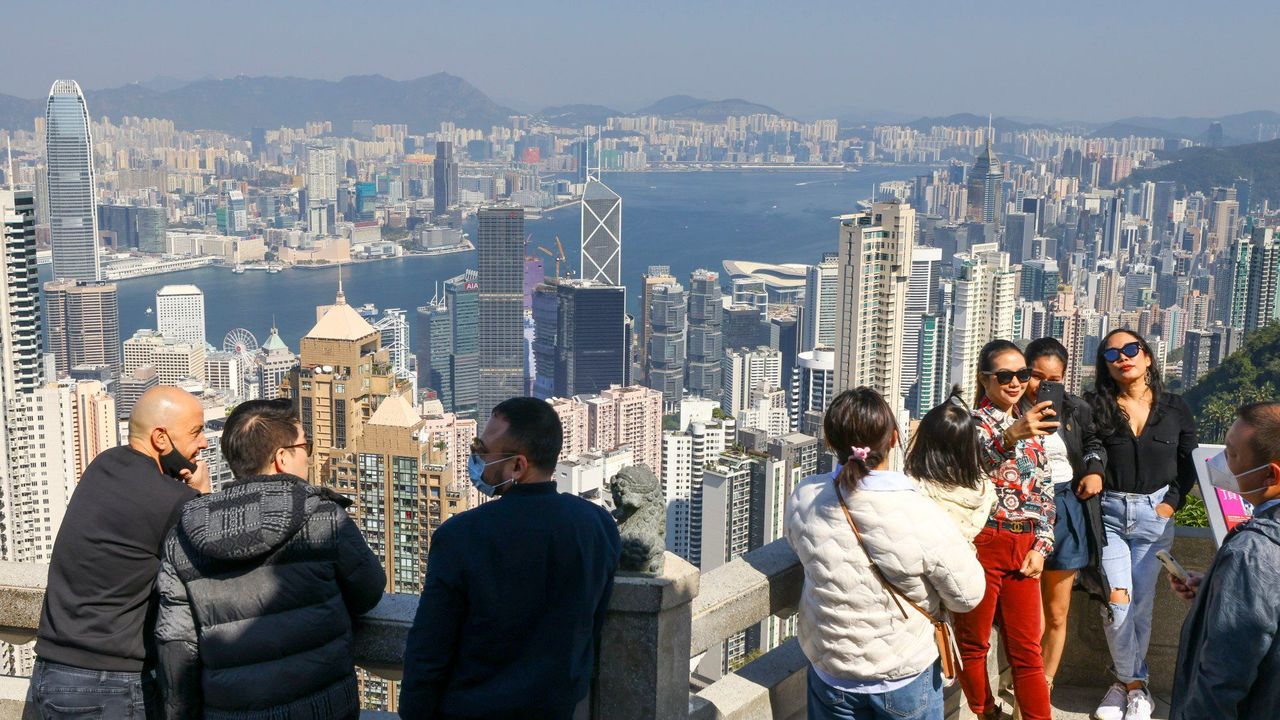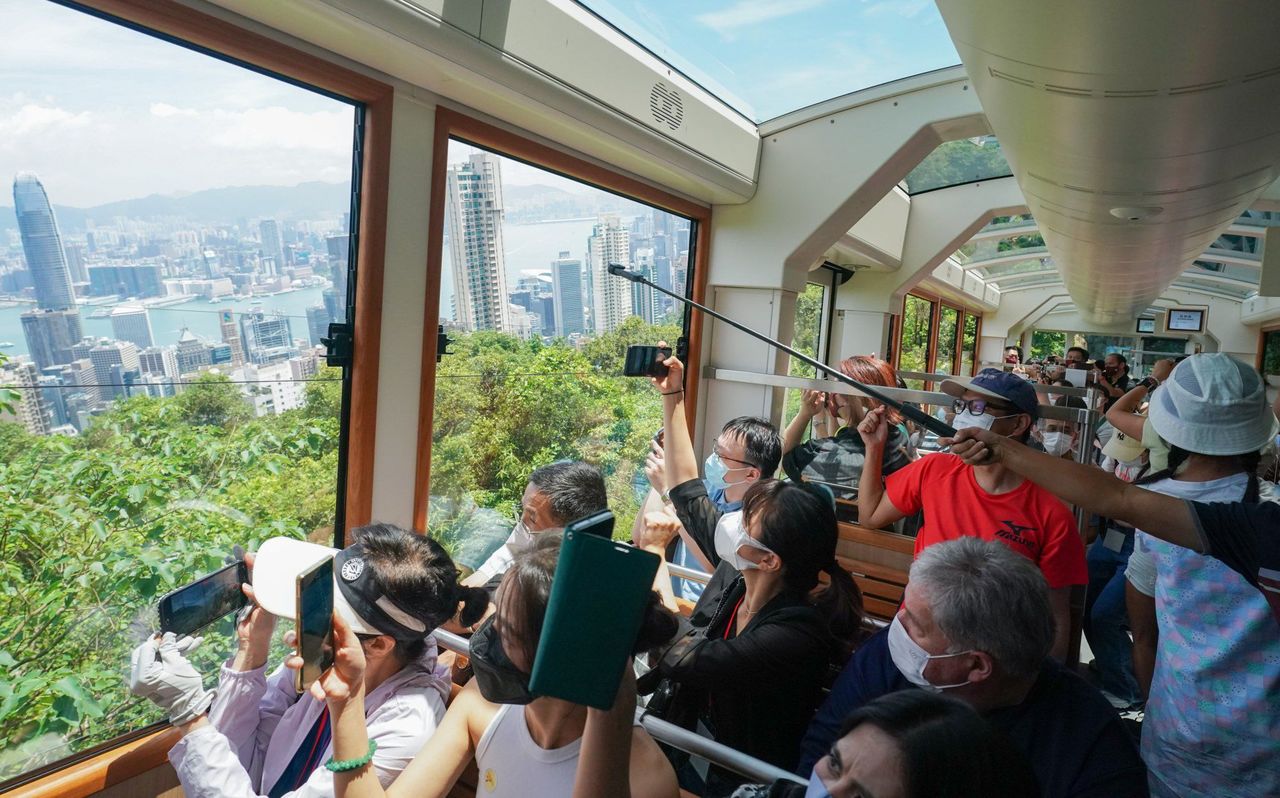Hong Kong News

No training yet for new Hong Kong tour guides who speak English, other languages
Tourists may be returning to Hong Kong after more than three years of the Covid-19 pandemic, but it is not yet business as usual for tour agent Lorena Fernandez Chaves.
Her agency, Vive Hong Kong, specialises in walking tours conducted in Spanish and Portuguese, but is struggling to find tour guides as the authorities have stopped running guide courses for those who speak English and other foreign languages.
All tour guides in the city must be trained and certified by the Travel Industry Authority (TIA), which oversees licensing. Working with external vocational organisations, it offers both short-term and year-long courses.
Fernandez Chaves, 37, a Uruguayan permanent resident of Hong Kong, founded her company in 2013 and ran 30 to 50 tours a month before the pandemic, with a revenue of more than HK$2 million (US$254,871) in 2019.
She said her repeated enquiries to the TIA had been futile. The Travel Industry Council, which was the licensing body for tour guides before the TIA took over in 2020, could not help either.
“They just told me to wait,” she said. “They said information would be published on the website and to just keep looking.”
According to the TIA website, a Chinese course offered by the Hong Kong College of Technology, for example, will run once from next month and consists of 38 lessons. The authority also offers a full-time year-long course by the Hong Kong Institute of Vocational Education.
 Visitors at The Peak.
Visitors at The Peak.
Guides are expected to know how to conduct themselves professionally, learn visitor behaviour and have adequate knowledge of Hong Kong and mainland China. During training, they also practice how to conduct tours around the city.
Fernandez Chaves said she had five employees before the pandemic, but three had left the city and the others found new jobs.
Heavily pregnant with her second child, she said she was desperate to get new employees as she would not be able to accompany guests on private tours exploring Hong Kong Island and Lantau after giving birth.
The only tour guide she had was a temporary employee planning to leave Hong Kong later this year. Although she found a handful of people keen to work with her, they had no licences and there were no guiding courses they could attend yet.
Disappointed that she could not restart her business properly now that visitors were returning, Fernandez Chaves said: “I have been waiting for this moment for a long time, but it’s not fair that I cannot do things the right way, getting the licences and training the people.”
“I know the Chinese market is the most important market, but there are also smaller markets and we exist.”
Amy Overy, owner of tour organiser Hong Kong Greeters, said also had a “big headache” getting non-Chinese-speaking new guides trained.
She had two people, a Pole and a Canadian, waiting to do the training course and be certified as guides.
She said that before the pandemic, the TIC usually had a course in English about once a year and would contact her to see if she had anyone to enrol in it.
 Tourists are returning to Hong Kong, but there has been no news on tour guide training.
Tourists are returning to Hong Kong, but there has been no news on tour guide training.
Since last September, however, there had been no news from the TIA about training new guides and, like Fernandez Chaves, she was told to keep checking the authority’s website for updates.
“I know I am not the only agency facing this problem,” she said. “This also affects agencies that provide services to some of the biggest markets, Thai and Korean, for example,” she said.
“It is true a lot of guides have left the city for good, but we don’t have a way of legally replacing them.”
The Post has reached out to the TIA for a comment.
The predicament for non-Chinese-speaking guides came as arrivals to the city more than doubled from 498,689 in January to 1.46 million last month – the first time the monthly figure crossed a million since Covid-19 struck in early 2020.
Mainland Chinese visitors made up 1.1 million of total arrivals last month, four times more than the 280,525 who came in January, according to Hong Kong Tourism Board data. Other data for last month has not been released yet.
The second largest group of visitors in January were the 73,614 who came from Macau, followed by 27,690 from Taiwan and 18,705 from the Philippines.
The board did not release numbers for specific South American countries, but there were 14,109 visitors in January from “other” long-haul markets excluding the United States, Britain, Canada, France, Germany and Australia.
In early February, the government kicked off its “Hello Hong Kong” campaign to showcase the city’s return to the global stage after three years of the pandemic, with free airline tickets for visitors and vouchers for drinks, dining and shopping.
However, the board’s executive director Dane Cheng Ting-yat on Saturday said the industry still faced manpower shortages, noting tour guides and drivers lacked at least one-third of the required staff.
He also said authorities would follow up on “low quality and low cost” tours, where some visitors were made to eat meals on the street or spend money at designated stores, affecting their experience.











